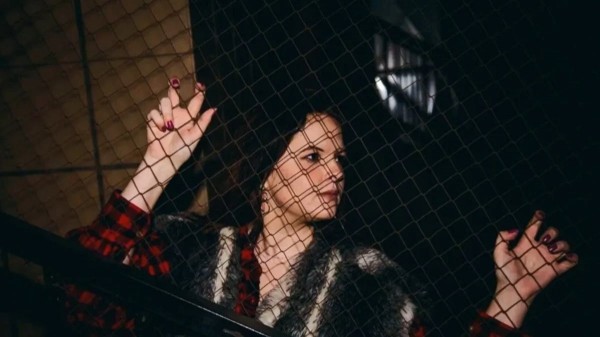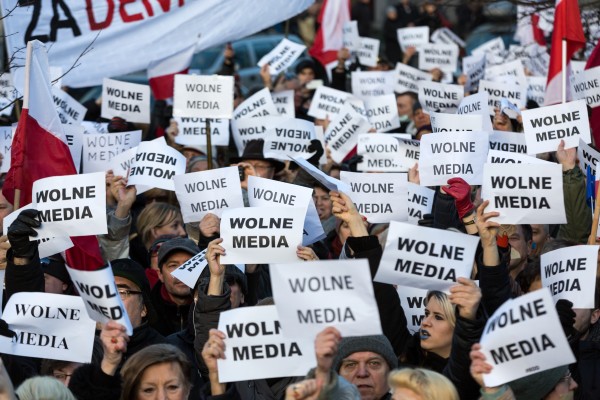Emre Kizilkaya is the vice chair of IPI’s Turkish National Committee and a managing editor and coordinator at Turkish newspaper Hurriyet. He blogs regularly at The Istanbulian, Personal Chronicles of a Turkish Journalist, where this post originally appeared on May 27, 2014. It is reprinted here, with minor edits, by permission.
Prime Minister Tayyip Erdogan did it again today when he accused BBC Turkish of hiring actors to make up a news story on the deadliest mining disaster in Turkey’s history to undermine his government’s image.
The disaster might really be a watershed moment in the Turkish government’s evolving modus operandi for dealing with the media, following its messy divorce from its ally-turned-nemesis, the Gulen movement.
The most positive result of the rift for Turkey’s democracy is the fact that there are far fewer journalists in Turkish prisons now compared to the heyday of the “holy alliance”.
The Turkish Journalists’ Union had announced on April 25 that 43 journalists were still behind prison bars, while the Turkish government argues that only 15 inmates are journalists.
By all means, the release of 10 journalists in May meant that Turkey finally got rid of that notorious title: “The worst jailer of journalists in the world”.
The recent releases in Turkey were thanks to a new law passed in March reducing the detention limit for suspects on trial from 10 years to five years. The initiative of the government could be traced back to December 17, 2013, when massive graft investigations targeting it had been started by the prosecutors and the police chiefs who were allegedly Gulenists. Award-winning journalists Nedim Sener and Ahmet Sik were both arrested following their investigative works on the Gulenist network.
Long gone are the days when journalists were arrested at their homes which were usually raided at dawn by the order of prosecutors and police officials who belonged to “the Gulenist parallel structure”.
Instead, today’s journalists in Turkey began facing systematic campaigns of slander and intimidation in pro-government newspapers, death threats on social media – and Prime Minister Tayyip Erdogan’s increasingly stronger calls for media bosses to fire critical pundits and for his own voters to sue them in courts.
Neither Erdogan’s determination to have total control on information flow nor his attacks on foreign and national media nor pro-government media’s partisan attacks on impartial reports, like those my own newspaper Hurriyet publishes, were novelties. However, we’ve seen for the first time in the past few days how Ankara might be strategically internationalizing its war on media, as pro-government campaigns take a dangerous turn.
German magazine Der Spiegel withdrew its reporter Hasnain Kazim from Turkey on May 20, after he reportedly received some 10,000 death threats over a report in the wake of the Soma disaster.
Several pro-government dailies had harshly slammed Der Spiegel’s headline which quoted the reaction of a miner in Soma who said “Go to hell, Erdogan.” Yeni Safak, one such newspaper, published a profile of Kazim, together with his photo, in which it concluded: “What does the fact that journalist Hasnain Kazim sends abrasive, insulting and not insubstantial reports targeting [Erdogan] mean?”
Erdogan criticized Der Spiegel during his May 24 visit to Cologne, Germany. “One of the headlines in a presumptuous magazine was meaningful,” he said. “[The reporter] was sending me to hell. Apparently, he knows the way to hell.”
“I did not say anything against the Prime Minister,” Kazim told me by email after he returned to Germany. “I quoted a worker from Soma. Unfortunately some media put his words into my mouth – papers close to the government to show that I am against the government and papers close to the opposition to misuse me as a key witness. Fact is: I only reported, I did not comment.”
Kazim is not the only example. Erdogan, himself, directly targeted the BBC Turkish correspondents, as well as a Hurriyet columnist, while addressing to the ruling Justice and Development Party (AKP)’s parliamentary group on May 20.
“An international television station’s correspondent in Turkey went [to Soma] and found players, making them play the part of so-called miners’ relatives,” he said. “They then service it to the whole world.” He repeated this allegation during his address to the ruling AKP’s parliamentary group on May 27.
It was daily Yeni Safak again, which named the BBC and targeted its correspondent Rengin Arslan. The story, in which Arslan was accused of “high treason”, was soon followed by a social media campaign and “wishes” for her to die. This is a subtle threat, compared to those that flooded Kazim’s Twitter timeline, like the one about “cutting his throat”.
Like Der Spiegel, the BBC stood by its report, stressing that it verified that the women Erdogan talked about were really miners’ relatives, not actors.
As the Vienna-based International Press Institute’s (IPI) National Committee in Turkey, we noted other reports in the Turkish media, like a May 21 daily Yeni Akit article in which freelance journalist Piotr Zalewski, who reported for TIME, the Financial Times and Foreign Policy, was labelled an “informant”, while other media outlets, including mine, were either described as “Zionists” or “Zionist lovers”. All that these journalists, including Zalewski, did was share a front-page headline of Yeni Akit, which ridiculously argued that foreign media “attacks” the Turkish government over the Soma disaster because the son-in-law of the mine’s owner was Jewish!
Journalists, particularly those who report in English, now feel a higher pressure in Turkey. “There were always hate mails from various sources – nationalists, Islamists, etc., but never organized campaigns and even death threats like today,” Daniel Steinvorth, Der Spiegel’s Turkey correspondent from 2008 to 2011 told me on May 20. “It’s sad to see to what extent certain circles in Turkey are ready to go.”
Although they have not been so aggressive and systematic before, journalists, whether foreign or Turkish, faced such campaigns in the past, too. In April 2013, Haberturk daily stopped publishing the opinion pieces written by Amberin Zaman, The Economist’s correspondent in Turkey, after she was targeted in pro-government media and social media following her articles criticizing the Turkish government. After almost a year, it was revealed, and then admitted by Erdogan, how much the Turkish PM was involved in Haberturk newsmaking.
“The attacks against Kazim are part of a broader and systematic campaign of seeking to discredit and to intimidate foreign reporters, who unlike their Turkish peers are able to report the facts accurately and objectively,” Zaman told me. “The demonization of foreign media also bolsters the government’s narrative about global Jewish forces out to get them.”
Selin Girit, another BBC reporter, had been labelled as “an agent” and “traitor” by Ankara Mayor Melih Gokcek on June 23, 2013 because of her reporting. After targeting BBC’s Girit, Gokcek targeted CNN International, claiming that the U.S. broadcaster was “lying”.
“Once your name is in circulation, the dirt they fling lasts even if you do everything to defend yourself and your report,” Girit told me during a telephone conversation on May 21. “A journalist should be able to talk to everybody; but when you’re labelled, your contacts stop talking to you and it hampers your work. This is a dangerous situation not only for journalists, but also for the public’s right to be informed.”
She added: “They do this because they cannot put editorial pressure [on the BBC]. Hence, they put this pressure on individuals.”
Erdogan, himself, criticized Girit on June 25, 2013 for live-tweeting the Gezi Park protests, which kick-started the change in the government’s strategy for controlling the flow of information. After Gezi, Ankara found out that lashing out at journalists individually and channelling public pressure on them could have a more limited effect on the government’s international image than the Gulenist-led arrests of the past, while still bearing the potential to keep these nasty individuals “in line”.
“Psychological pressure put on journalists, especially a perception that their lives are in danger, can affect their performance,” a colleague, who was subjected to a slander campaign on social media months ago, told me on condition of anonymity. “Even if they’re not affected at all, the AKP doesn’t lose anything with such campaigns. Far from causing Erdogan to lose votes, accusing foreign powers can even reinforce his electoral support. Many Turks like conspiracy theories, as we all know.”
This is why pro-government circles are apparently systematizing their criticism of media, as they pick individual targets now. After the December 17 graft investigations, which marked the beginning of a total war between the AKP and the Gulenists, the Turkish PM accused the Wall Street Journal – and the BBC, again – of “siphoning off [Turkey’s] resources and energy”.
The government might have a new strategy to influence foreign media in a way that it does with the Turkish one, but – with a certain degree of wishful thinking – controlling the flow of information in the digital age – globally – will be much harder for Erdogan as seen recently in the Twitter case.
I wrote about “the AKP’s social media army” after I was personally targeted in an apparently orchestrated pro-government attack on social media last November. The pro-government forces, as well as some opposition figures, mobilized bots then, in a move that also largely failed. Twitter was blocked by Ankara one day after I reported in my newspaper that it started to delete the pro-government bots and fake accounts in Turkey.
Yes, public opinion can be manipulated on social media, too, but truth ultimately prevails in this new domain which has no gatekeepers like we have gotten used to; a fact that could lead to the failure of any government’s strategy to dominate the flow of information.
Yes, threats and attacks can indeed turn an individual’s life to hell, but the system of governance, anywhere in the world, is bound to be democratized sooner or later, thanks to the new kind of interaction between public, media and institutions.
In the end, a multifaceted, bottom-up, democratic medium would surely evolve faster than a monophonic, top-down, autocratic one.


